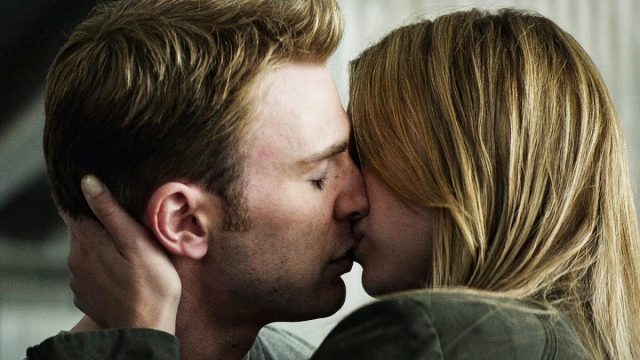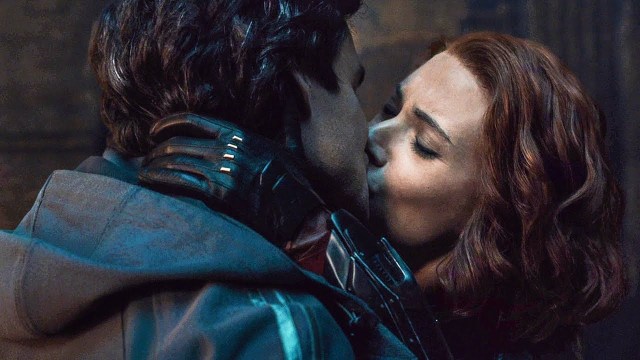Avengers: Endgame Abandoned the MCU’s Two Worst Romances


You’d think I’d be thrilled about Avengers: Endgame‘s shelving of two unconvincing, strangely shoehorned-in romantic pairings. But I’m not happy about how they were handled.
***Major spoilers for Avengers: Endgame ahead***
When we ask for queer representation in superhero movies, many troll responses like to make the argument that these stories aren’t supposed to be about the heroes’ love lives, so their sexuality shouldn’t matter one way or the other. This is a specious argument, because sexuality and romance don’t need to go together; a character needn’t be in a relationship to be shown as openly queer.
It’s also specious because some element of romance has been present in almost every MCU film to date (Iron Man, Captain America: The Winter Soldier, and Thor: Ragnarok are the exceptions), so nineteen other films would suggest that Marvel considers romance a rather essential storytelling component.
Nowhere is romantic attachment more highly prized than in Avengers: Endgame, especially as it concerns marriage and expanding into a nuclear family. This rather old-fashioned approach plays a big part in the trajectory of Tony Stark and Clint Barton, and it is the driving force of Steve Rogers’ entire concluding arc. But not every MCU pairing receives fair treatment in the Avengers’ last bow.
We’re meant to believe that Steve would leave behind his team in a state of grieving, his best friend who has just been returned to him, his other best friend who’s about to inherit his shield without any tips, and a broken world still in dire need of assistance—all so that he can go back in time and be with “the love of his life,” Peggy Carter, a woman with whom he was supposed to meet for a date once seventy years ago.
This isn’t a screed against Peggy—I adore her character, and the romance they flirted with in The First Avenger was moving and sweet. If Steve had to end up with anyone, it tracks that it would be her. But the circumstances are out of character and bizarre, not to mention the time travel paradoxes. Beyond this, Steve’s marriage to Peggy absolutely tosses out of the window the romantic connection he forged with her niece—now also his niece, awkward—Sharon Carter.

I’ve written about why I dislike how Steve and Sharon are shoved together in Civil War for one weird kiss. But I like Sharon’s character quite a lot, onscreen as well as in the comics, and to see her written off without so much as a mention is uncomfortable. The actress Emily VanCamp has spoken diplomatically in the past about how Sharon was part of Steve’s world and not the greater whole, and the Infinity War/Endgame screenwriters have discussed how they felt there wasn’t space in the first film to explore everyone’s personal lives.
But Endgame is a movie that brings back almost every character who’s ever been in the MCU, even for just a brief cameo—and it delves into personal lives quite a lot. Everyone else from “Cap’s world” is there, including Alexander Pierce, Brock Rumlow, Red Skull, and Jasper Sitwell. Even Arnim Zola gets a shoutout. Sharon is totally missing, presumably because her appearance would throw a wrench in the misty-eyed Steve/Peggy resolution by reminding the audience that she was there in the first place.
Just because Steve/Sharon was seen by some of us as poorly executed, and never as broadly popular as Steve/Peggy, doesn’t mean that it’s okay for the MCU to retcon that character development for Steve as though it never happened, and to seemingly retcon Sharon’s worth and involvement entirely. I argued back in January that it would be a mistake for the films to just disappear her. “You don’t give one of your biggest heroes a potential love interest over two movies and then never speak of it again,” I wrote in a memo that Kevin Feige left unread in the stack of my memos on his desk.
If the MCU had no further plans for Sharon, there was no need for the kiss in Civil War; it would have been refreshing for Steve to have simply made a new female friend and skilled ally. Had their attachment level remained as such, it’s not hard to imagine Sharon assembling in the big fight moment with the rest of the MCU’s powerful women. She deserved to be there. Instead, it is as though she never was, a devaluing of character no one else receives.

The other romance I’ve long railed against—and Avengers: Endgame saw fit to defenestrate—is that of Natasha Romanoff and Bruce Banner. Age of Ultron seemed to attempt to pair them for no better reason than they were the only “unattached” main Avengers. Their interactions thereafter were strained, implying that perhaps some greater sexy tension lay between them, though Bruce generally looked scared and Natasha looked amused.
Still, the MCU insisted on continuing to give them a weighted connection, with moments like the one in Ragnarok where the Hulk turns back into Bruce at the sight of Natasha on the computer monitor.
In Avengers: Endgame, there are suggestions that there is more to Bruce and Natasha’s relationship, but no will whatsoever to develop it. As with Steve and Sharon, Marvel appeared to want to graft in a romance on occasion and then hope we’d forget or stop caring that it was there when it didn’t fit their larger narrative.
When we meet up with the Avengers after the 5-year time jump, Bruce had been working to combine Banner and Hulk as his main goal. This interim would have been, theoretically, the perfect time to be with Natasha had their characters been so inclined—reaching for each other in a fractured universe, creating a sustaining bond. Natasha has moved into a position of leadership, but she also seems to be quite alone.
Had Marvel wanted these two to be developed together for further poignancy or basic continuity, we could have been told that they gave it a go in the background. Perhaps it fell apart, and was part of Bruce’s inclination to so radically change himself and embrace his Hulk side. But there’s nothing.
Yet Endgame isn’t finished. It gives Bruce (Professor Hulk?) the line “Clint, where’s Nat?” as he’s the first to notice she’s missing when they return from their missions. We pan to Professor Hulk’s devastated expression. Then, as the men discuss their fallen teammate, Professor Hulk is overwhelmed by his emotions, tears a bench from the dock, and hurls it into the distance. It’s meant to imply that he has feelings for Natasha even though they’re unexplored otherwise. Later, at Tony’s funeral, sad Professor Hulk stands alone, presumably missing his dead BFF Tony Stark as well as his quasi-lady love.
What bothers me about the abandonment of another romance that I disliked in the first place is simply that: its abandonment. There’s at least some lingering subtext here, which the erased Sharon Carter never gets. But why spend so many movies trying to make Bruce/Natasha happen only to cancel them out?
Does Marvel think that we’re not paying attention? Either resolve them—”we tried to make it work” or “we realized there was nothing there” are easy lines to include—or give us some heartbreaking melodrama. Have Natasha tell Clint, as she’s slipping away, “Tell Bruce I’m sorry.” Or have Professor Hulk weep about how he thought one day they might be together.
It feels as though this may have been excised to make Natasha’s sacrifice more defensible than Clint’s: she was seemingly unattached. No matter what, the MCU should have given us acknowledgment that they’d tried to make us care about these people’s interactions for several years. Steve/Sharon and Bruce/Natasha have their share of fans, sparked by the MCU’s canon and now ignored.
I’m uncomfortable with the implied hierarchy of relationships here. Just because the MCU’s own plotting and writing failed to generate deeper bonds between Steve and Sharon and Natasha and Bruce doesn’t mean they should just fall by the wayside. Not in a movie bent on hammering us over the head with the message that long-term commitment and familial attachment are the true endgame.
(images: Marvel Studios)
Want more stories like this? Become a subscriber and support the site!
—The Mary Sue has a strict comment policy that forbids, but is not limited to, personal insults toward anyone, hate speech, and trolling.—
Have a tip we should know? [email protected]
